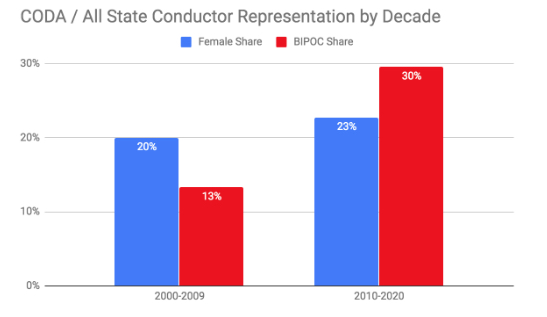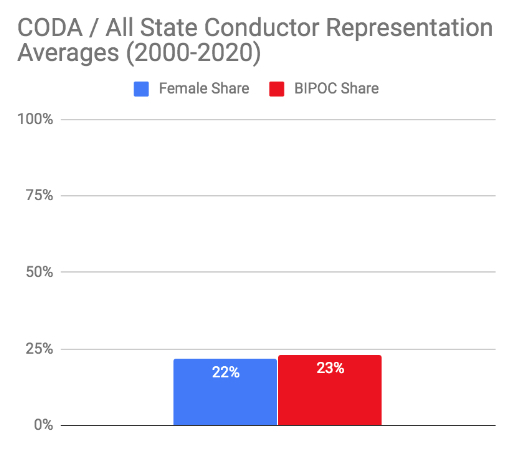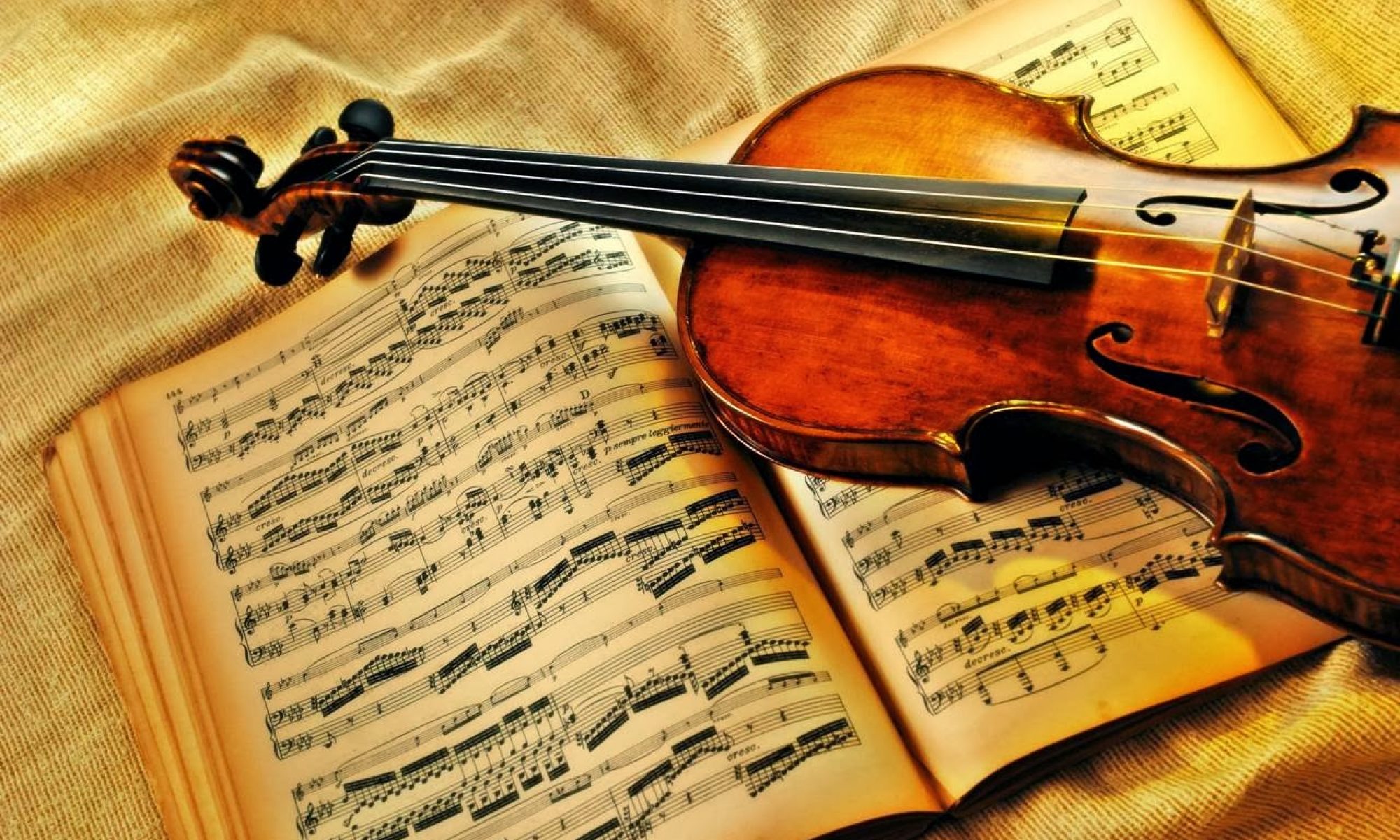CODA and Diversity, Equity, and Inclusion (DEI)
CODA serves to promote school orchestras in California by providing quality honor orchestra experiences for school orchestra students. Music continues to be a vehicle to bring our communities together in the ongoing effort to end systemic racism, discrimination, and injustice. We believe that our students deserve respect and representation inclusive of race, religion, socio-economic status, sexuality, and gender identity. CODA also facilitates an exchange of instructional strategies and ideas for the school orchestra director and provides a community and forum for school orchestra directors. We pledge to center the discussion of diversity, equity, and inclusion in our ensembles, classroom culture, and music libraries.
Our goal is to help increase access to quality orchestral experiences for all students. Our proposed long-term plans toward increased diversity, equity, and inclusion include:
1. Conductor Diversity
2. Repertoire Recommendation for Honor Orchestras
3. Financial Barriers for Honor Orchestra Participation
4. Teacher Education Regarding Diversity
5. Diversity, Equity, and Inclusion Chair & Resources
1. Conductor Diversity
CODA invites conductors for our annual CODA Honor Orchestra and All-State Orchestra events. Our intention is to refocus on criteria of diversity, equity, and inclusion in our invitation processes in seeking out conductors to lead these powerful musical experiences. Over the next 10 years, we’d like our invited conductor demographics to mirror those of the state of California. 2019 CA Census Data cites our state as 50.3% female, and we intend to invite 50% female conductors over the next 10 years. While US census data cites our country as currently ~60% white, California census data reports our state as ~37% white. We aim to mirror this data by hiring a minimum of 63% Black, Indiginous, and People of Color (BIPOC) conductors over the next 10 years.
Certainly, the world of conducting and that of graduate studies in music are not nearly as diverse as the state population. A 2015 study found that music teacher candidates across the U.S. to be 86% white (Elpus, 2015). Band conductors are cited as less than 10% female (Sheldon & Hartley, 2012), and Bachtrack’s 2019 findings list 8 of the top 100 symphonic conductors internationally as women. CODA aims to hire conductors that more closely represent the demographics of students we serve.
CODA goals for invited conductors over the next 10 years (mirroring demographics of CA 2019 Census data):
50% Female
63% BIPOC
CODA Conductor Data (2000-2020):


Hewitt, M., & Thompson, L. (2006). A survey of music teacher educators’ professional backgrounds, responsibilities and demographics. Bulletin of the Council for Research in Music Education, 170, 47-62.
Elpus, K. (2015). Music Teacher Licensure Candidates in the United States: A Demographic Profile and Analysis of Licensure Examination Scores. Journal of Research in Music Education, 63(3), 314–335. https://doi.org/10.1177/0022429415602470
Sheldon, D., & Hartley, L. (2012). What Color Is Your Baton, Girl? Gender and Ethnicity in Band Conducting. Bulletin of the Council for Research in Music Education, (192), 39-52. doi:10.5406/bulcouresmusedu.192.0039
2. Repertoire Recommendation for Honor Orchestras
The following statement will be provided to all CODA Honor Orchestra Conductors: “As you select your repertoire for our honor orchestras, we ask you to consider programming music and composers that reflect the abundance of cultural diversity that is representative of our students across the state of California.”
Stats from the Institute for Composer Diversity we are considering: an orchestral season with 50 works can/should aim for 13-18 works by living composers, 8-13 works by women composers, and 8-13 works by composers from underrepresented heritages.
3. Financial Barriers for Honor Orchestra Participation
CODA recognizes the significant role that socio-economic status has in student participation in our Honor Orchestras. Audition and participation fees often prevent otherwise deserving students from taking part in these quality experiences. As an organization we commit to reviewing our policies and practices, and creating avenues for students to receive financial support to participate in CODA sponsored Honor Orchestras.
4. Teacher Education Regarding Diversity
CODA will provide educators with resources that address Culturally Responsive Teaching with suggestions on decolonizing our music libraries as a way to expose our students to literature that is representative of students across the state of California.
5. Diversity, Equity, and Inclusion Chair & Resources
CODA will build and maintain a page on our website that highlights resources for teachers and students. These will include music scholarship opportunities, culturally-responsive teaching resources, and relevant repertoire diversity materials. CODA will add a Diversity, Equity, and Inclusion Chair to our Programs Committee. The chair will curate materials for the DEI webpage, report out regularly during board meetings, and work with the other music education organizations in California to keep equity and inclusion as a focus for our organization.
CODA believes that we must continue to work toward equity for all of our students. These initiatives to improve representation and inclusion are a start, but are certainly not the end. CODA commits to continuing these long-term conversations within our organization, with our membership, and with the students and families that we serve. Please feel free to reach out to our Executive Administrator Trish Adams (tadams@codaorchestras.org) with any feedback or suggestions for further improvement.

